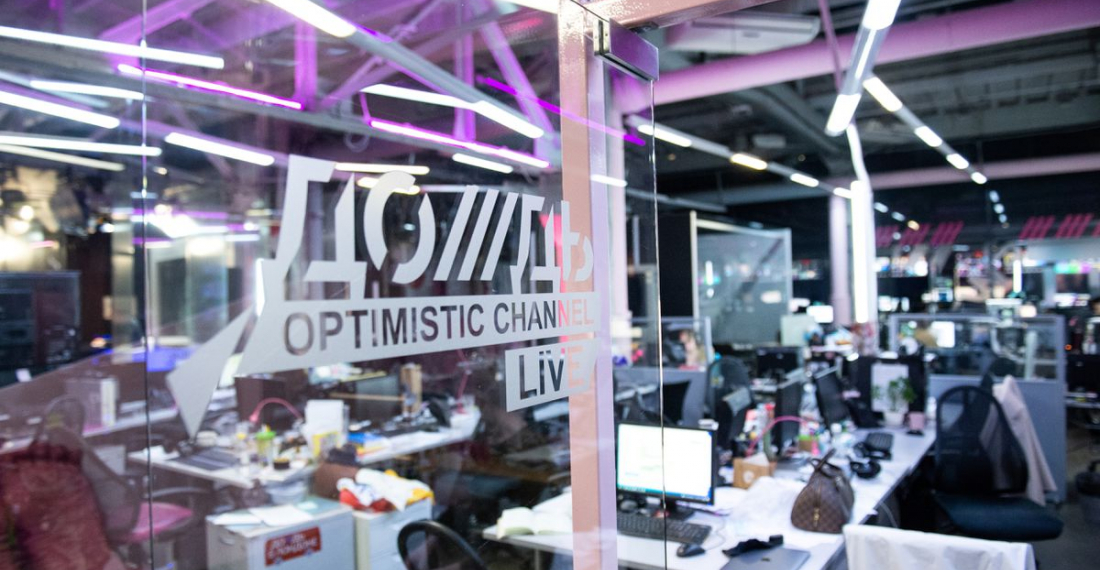Russia's last remaining independent television channel station, Dozhd TV, commonly known in English as TV Rain, has been ordered to close by Latvia's media regulator less than five months after moving operations to Riga.
Latvia's media regulator, The National Electronic Media Council (NEPLP), announced the ruling on Tuesday (6 December), ordering TV Rain to cease operations by Friday 8 December. It said the decision to order the station to close was taken "in connection with threats to national security and public order."
TV Rain has called the allegations "unfair and absurd" in a post on social media.
The decision to revoke TV Rain's broadcasting licence comes after it was fined €10,000 on Friday 2 December for displaying a map in which Ukraine's Crimean peninsula, which Russia illegally annexed in 2014, was marked as Russian territory. They had also referred to the Russian army as "our army", and offered viewers advice on how to provide recently mobilised Russians with supplies and equipment. In the latter case, one of the station's hosts, Alexei Korostelyov, was fired as a result.
The Latvian State Security Service (VDD) had been investigating the incident, and has repeatedly warned of the "various risks emanating from Russia's so-called independent media relocating their activity to Latvia". In a statement released earlier this week, the VDD said that:
"Media representatives who have arrived from the aggressor state [Russia] create intelligence risks. Since these media companies and journalists have been working in the aggressor country for a long time, it cannot be ruled out that certain media outlets that started operating in Latvia or their representatives have links with the Russian special services. Also, there is a possible increased interest of the Russian special services in the activities of the emigrant media in Latvia."
They also added that, "for years, Russia has implemented targeted and systematic measures to influence public opinion in accordance with Russia's interests, therefore there is a risk that messages directed against Western countries, including Latvia, may be included in the content created by certain media."
Although TV Rain will be forced to cease broadcast operations in Latvia, they have said that they will continue to operate on YouTube.
source: commonspace.eu with agencies
photo: REUTERS/Denis Kaminev






